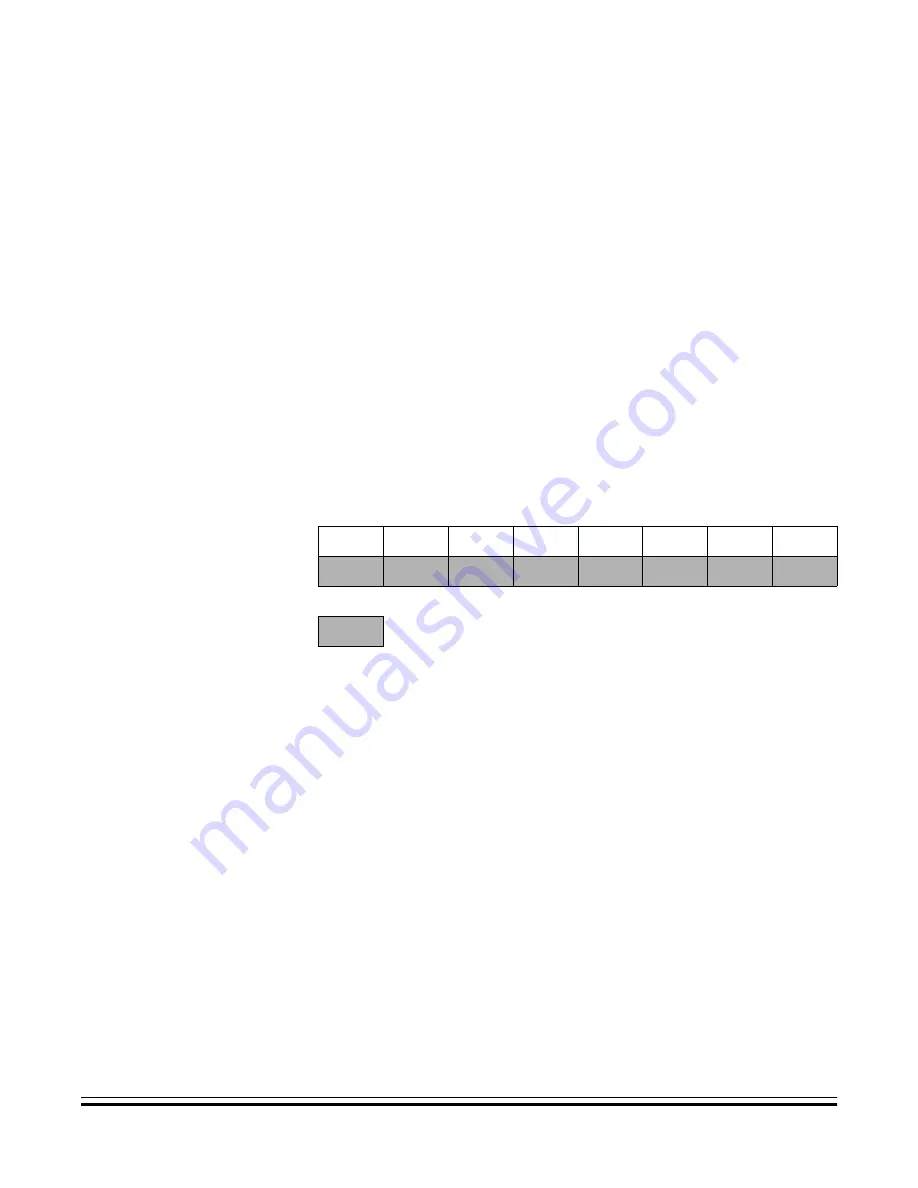
Universal Serial Bus (USB) Interface
Data Communication via Endpoints EP1 and EP2
USB08 Evaluation Board
Designer Reference Manual
MOTOROLA
Universal Serial Bus (USB) Interface
77
after 10 ms the host asks whether further data has to be fetched from
endpoint 1 or not.
NOTE:
In practice, the host uses only intervals of 2
n
ms, the demanded 10 ms
is then rounded to 8 ms.
The USB interrupt routine is called cyclically and branches to the handler
handleIN1. From there, data is taken from the ring buffer TxBuffer (if
available) and transferred into the USB endpoint 1 data registers
UE1D0–UE1D7. Subsequently, the number of bytes which should be
sent is registered in the fields TP1SIZ3–TP1SIZ0. If no data is in the
buffer, this number is registered as 0. The T1SEQ bit is inverted to switch
between DATA0 and DATA1 packets (data toggle). Finally, by setting
the bit TX1E in the USB control register 1 (UCR1), the transmission of
the data is enabled.
The operation mode selected here is based on a continuous data
stream. If there is no transmit data in the buffer, the device will send data
packets with zero byte contents. If this condition continues for a longer
time, sending of empty data packets means a waste of bus bandwidth.
If this turns out as critical, a change of the operation mode is
recommended. Alternatively, it is possible to disable TX1E, as long as
no data is present in the buffer. Then, the endpoint answers a polling
only with a NAK packet and does not occupy any additional bandwidth
by sending an empty data packet.
Bit 7
6
5
4
3
2
1
Bit 0
Read:
T1SEQ
STALL1
TX1E
FRESUM
TP1SIZ3
TP1SIZ2
TP1SIZ1
TP1SIZ0
Write:
Reset:
0
0
0
0
0
0
0
0
= Unimplemented
Figure 4-11. USB Control Register 1 (UCR1)
















































